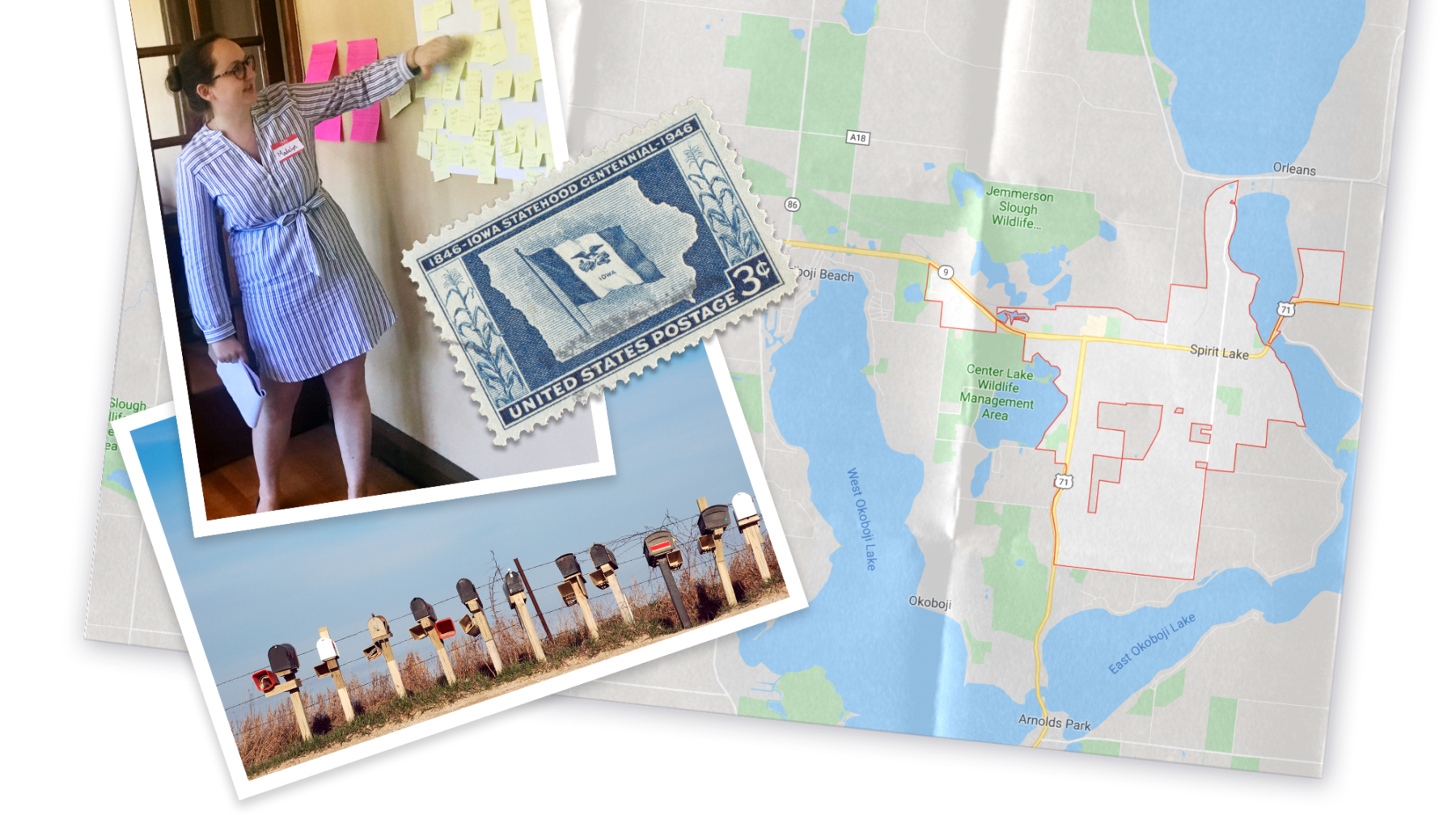
Madelyn Petersen worked with Harvard Law School’s International Human Rights Clinic to determine what effect postal service changes would have on rural Iowa.
Photos courtesy of Corporate Accountability Lab and from iStock
Mail priorities
“It’s so critical that legal advocates approach problems with humility and understanding.”
Madelyn Petersen, J.D. ’19, got a crash course last year in how research in the field can sometimes yield unexpected personal insights. As a member of Harvard Law School’s International Human Rights Clinic, she and several other students traveled to northwest Iowa to study how the federal government’s plan to potentially privatize the U.S. Postal Service might affect the small, largely rural communities there.
“Beyond mailing letters, the post office gives people the ability to connect with their families, their friends, commerce, and health care providers, especially in smaller communities,” said Petersen. “We wanted to see if there was some way we could support smaller communities that might be at risk of being impacted by changes in service and accessibility that could come with the privatization of the post office.”
The work was personal for Petersen: A native of the region, she grew up in Spirit Lake, and her extended family, including grandparents, great aunts, and great uncles, call nearby Hartley home.
Alongside fellow student Elizabeth Gyori and clinic instructor Amelia Evans, Petersen organized community meetings, went door to door to interview residents, and spoke to community leaders to get a sense of the place the postal service had in residents’ lives and whether they were concerned about their access to it being threatened.
“We found that mailing medications was particularly critical if your town doesn’t have a pharmacy,” said Petersen. “If you’re elderly or physically disabled, you might not be able to easily travel to another town to visit the nearest pharmacy, and the local post office fills those gaps.”
But when their conversations turned to potential changes to the level of service available if the Postal Service were to be privatized, they found that people struggled to see it as an immediate threat — and that changed the research direction entirely.
“There are a lot of competing priorities for people in northwest Iowa on a daily basis,” explained Petersen. “Is my grocery store going to be OK? What is the harvest going to look like this year? Do we have access to health care?
“One thing I saw really starkly that I also saw growing up in Iowa but didn’t really realize as a child is that the people in these communities are incredibly resilient and adaptable. We often heard people say they as a community would figure out how to handle [any closures]. They would figure out how to adapt, how to help each other overcome the new challenges that would arise from reductions in service.”
Petersen and her colleagues wrapped up their work and are considering reframing the issue from the national perspective. Despite the outcome of this particular study, it reinforced one of her core beliefs.
“It’s so critical that legal advocates approach problems with humility and the understanding that, at the end of the day, we might not be the best equipped to solve a community’s problems, but we are equipped to facilitate, support, and amplify their own efforts.
“People everywhere know how to make their communities better. They know what the issues are, and they are so talented in so many ways. But they don’t always have connections to opportunities or access to systems, and the legal system is one of those. As a lawyer, my role is to try to help people connect with those systems, so that the work they are already doing to create the world I want to live in is that much more impactful and successful.”
This story is part of the To Serve Better series, exploring connections between Harvard and neighborhoods across the United States.




